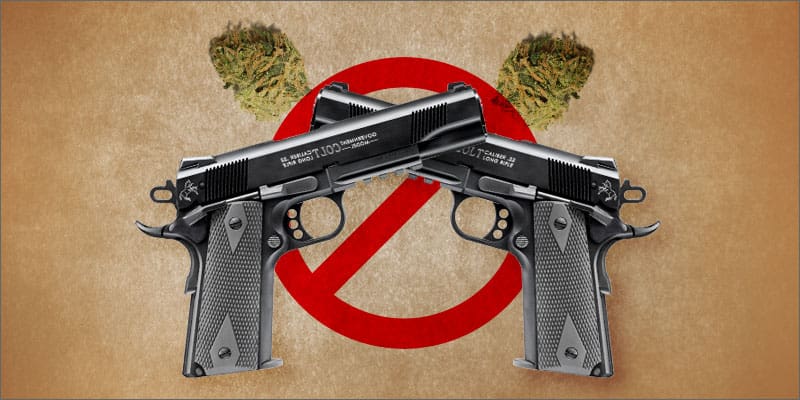One of our crack reporters passed along an interesting bit of intel on the New Yorker‘s bang-up feature story on the Bin Laden takedown. I read it, and then did some digging myself. And I’ve got good news and bad news. The bad news? The story may be, as Tennessee Williams was wont to say, “filled with mendacity.” The good news? Maybe not. Read on…
First let’s get the particulars out-of-the-way. If you’ve not already heard, the New Yorker has a feature story in the current issue on the end of Bin Laden, written by Nicholas Schmidle. Today, a website that specializes in Central Asian affairs, Registan.net, questions the story and author’s credibility questions. Rather than go through a laborious and lengthy series of quotes from Christine Fair’s article, I’ll hit the high points:
1. Schmidle is not an accredited journalist.
Um, let me be the first to say “SO WHAT?” to that one. I’m not an “accredited journalist” either, unless you wanna count me having taught Journalism in public school, written op-ed pieces for several newspapers, and had two books published. Are we talkin’ J-School diploma here? Doesn’t seem as though that’s any guarantee of journalistic ethics now-a-days.
2. Schmidle is the son of the deputy commander of the U.S. Cyber Command.
So? Fair seems to be fretting over a fear that the article will do harm to US-Islamic relations due to a perceived fear that the author’s father might have influenced the piece. Doesn’t bother me, nor do I give a rat’s ass how the Pakistanis feel about this article, Bin Laden, the takedown, or anything else for that matter. When they start acting like allies, then we’ll talk.
3. Schmidle doesn’t speak Pashto so he couldn’t possibly have understood what he heard.
Okay. I’ll give you that one. Sounds like embellishment to me.
4. In a live chat, he ducked her questions.
I don’t think it’s wise for any reporter to ever duck questions from another journalist. Looks bad. Perception is reality, after all. But that could well be his inexperience or just a screw up on the part of the people hosting the chat.
5. He quotes a SEAL as having said “For God and Country” when he pulled the trigger on Bin Laden.
I’ve got absolutely, positively NO problem with whatever our SEALs wanna say when they are taking down a bad guy. And being a Christian, I think it was a particularly apt thing to say. Fair seems to believe that we’ll offend the Muslims and add fuel to the fire that this was an Christian smackdown of Islam.
So friggin’ what? It’s not like our attempts at a “kinder and gentler” armed forces have resulted in anything but a lack of respect and more terror. Everybody I know that has been there and dealt with people in that part of the world tell me that they understand but one thing: Force. If you are unwilling to project force into an area, they think you’re a ball-less coward, a paper tiger who will be easy to defeat. If you step up and smack down, they may fear you and respect you, but they won’t screw with you.
A bit of digging turned up a bio on Ms. Fair that may shed some light on her perspectives:
C. Christine Fair has a PhD from the Department of South Asian Languages and Civilization in 2004 and an MA in the Harris School of Public Policy. Prior to joining the Center for Peace and Security Studies (CPASS), within Georgetown University ‘s Edmund A. Walsh School of Foreign Service, she has served as a senior political scientist with the RAND Corporation, a political officer to the United Nations Assistance Mission to Afghanistan in Kabul, and as a senior research associate in USIP’s Center for Conflict Analysis and Prevention. Her research focuses upon political and military affairs in South Asia. She has authored, co-authored and co-edited several books including Treading Softly on Sacred Ground: Counterinsurgency Operations on Sacred Space (OUP, 2008); The Madrassah Challenge: Militancy and Religious Education in Pakistan (USIP, 2008), Fortifying Pakistan: The Role of U.S. Internal Security Assistance (USIP, 2006); among others and has written numerous peer-reviewed articles covering a range of security issues in Afghanistan, Bangladesh, India, Pakistan, and Sri Lanka. She is a member of the International Institute of Strategic Studies, the Council on Foreign Relations, serves on the editorial board of Studies in Conflict and Terrorism, and is the Managing Editor of India Review. She is also a senior fellow with the Counter Terrorism Center at West Point.
In my experience, people who work in the diplomatic corps look at themselves as the keepers of the keys to international relations. They also seem to disparage the military, and believe that there is no conflict that can’t be solved my more talk. I don’t know if this is true of Ms. Fair. I don’t know her. And I’ll say I found her article credible, right up until she jumped on the fret-board about the “God and Country” quote. She lost me there. And just as a few things jumped out in the New Yorker piece to her, her concern over Muslim sensibilities made me take a step back and ask “what’s HER agenda.”
I don’t know what the truth is here. If the New Yorker piece is fictionalize, it makes for a hell of a good tale. If it’s all true, that makes it even better. I hope it is. But I’d like some answers from BOTH authors, so we can determine who’s making what up.





The only thing we know for sure is that Schmidle did not talk to any of the SEALs who were actually on the mission. No reporter has.
I couldn’t care less if the story is true or not. I am just pissed that they didn’t bring back his head on a pike.
+1
Maybe they did. Who knows.
“And being a Christian, I think it was a particularly apt thing to say.”
I’m not a Christian so I don’t understand how a statement like this can stand. Not trying to flame, just wondering .
+1
I am an atheist, and I personally have no issue with it.
I think the idea of serving for God and Country, is the American version of for king and country. These are phrases that are part of our lexicon, and they have particular meaning to the men who serve. I think the idea of recognizing your duty is part of what it means to be a seal and I think that this man had an opportunity to voice that in a 1 sentence status report back to the president and everyone else in the war room.
I doubt that sentence was entirely off the cuff either. I would bet that it was planned as I don’t think anyone walking into that raid had any illusions about what was going on. They knew that if it was what they hoped it was that their mission and the most relevant sentence they said would be going down in the history books…I think with that in mind, they said it and they had every right to say it.
It beats “F-ing A…headshot” or any other thing I can think of that might be said
Bin Laden died years ago. This whole SEAL thing is bullshit. Just my personal opinion.
There is nothing this country’s government won’t lie about. That is fact.
We have a winner. The whole story is as phony as a $3 bill.
Climb aboard, the black helicopters are here. Don’t forget your tin foil hat.
The article was a very good read and I took it with the same grain of salt I take with most journalistic articles.
That being said, to echo Brad, who cares at all what Muslims in other countries think? Who cares at all what other countries think, period? Last I checked, this country was founded solely to be different from other countries, and to found a nation of principles that no other country could fulfill.
Well, I thought the article read like a good “war story” anyway.. mostly the probable truth, with just enough B.S. to make it interesting- kind of like Dad’s “war stories”
Comments are closed.